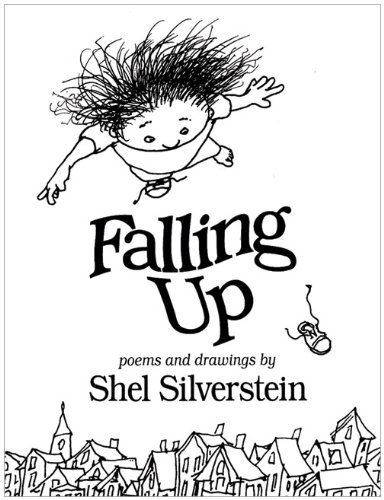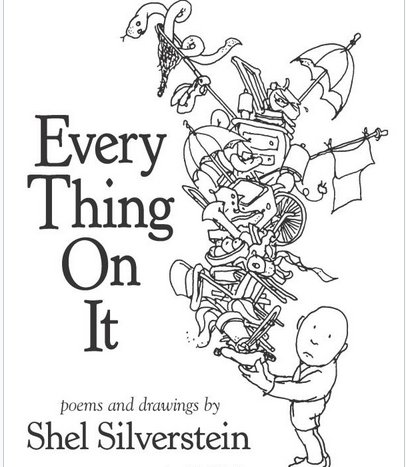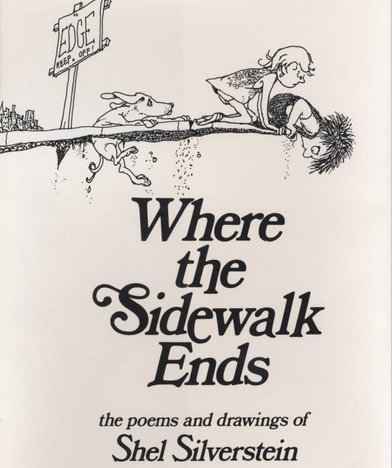Friday 20 December 2013
Friday 29 November 2013
On Novelty: A Follow-Up on Day Dreaming
Our team chatted about the last article we posted as a blog re: finding novelty through travel at any age or stage in life. We had different reactions to the article - mine being the most negative. In any event, our discussion led us to think of our current gappers: some can travel, while other decide not to - reasons for each are quite varied.
So, what about you? Can you pick up for a break tomorrow? Or a planned on next year? Regardless, the day dreaming these questions lead us to could be benefit enough.
 The article suggests that in order to explore novelity you must leave your present geographic space. This, of course, is not an option for all of us. Regardless of having or not having the 'travel bug' leaving or abandoning our current world with it's responsibilities etc is not always an option.
The article suggests that in order to explore novelity you must leave your present geographic space. This, of course, is not an option for all of us. Regardless of having or not having the 'travel bug' leaving or abandoning our current world with it's responsibilities etc is not always an option.
Well, for the next 5 weeks let's explore ways to travel without luggage, a boarding pass or a pass port.
This week it is Day Dreaming. In a 2012 research project, the benefits of day dreaming were captured. Daydreaming can increase your focus and task management. At the same time, give you the boost you need to continue on a task or throughout the day.
The same way taking in new smells, sights and sounds in another country might increase your "aha" moments, day dreaming can help satisfy these same needs.
Need a bit more convincing? Read On!
Article Rights:
And a video that helps to inspire novelity from the PianoGuys. It is seasonal & interesting. Have you stopped to think about how to use things differently?
So, what about you? Can you pick up for a break tomorrow? Or a planned on next year? Regardless, the day dreaming these questions lead us to could be benefit enough.
 The article suggests that in order to explore novelity you must leave your present geographic space. This, of course, is not an option for all of us. Regardless of having or not having the 'travel bug' leaving or abandoning our current world with it's responsibilities etc is not always an option.
The article suggests that in order to explore novelity you must leave your present geographic space. This, of course, is not an option for all of us. Regardless of having or not having the 'travel bug' leaving or abandoning our current world with it's responsibilities etc is not always an option.Well, for the next 5 weeks let's explore ways to travel without luggage, a boarding pass or a pass port.
This week it is Day Dreaming. In a 2012 research project, the benefits of day dreaming were captured. Daydreaming can increase your focus and task management. At the same time, give you the boost you need to continue on a task or throughout the day.
The same way taking in new smells, sights and sounds in another country might increase your "aha" moments, day dreaming can help satisfy these same needs.
Need a bit more convincing? Read On!
6 Quotes From Famous Dreamers That Prove Imagination Is Crucial
Close to 50 percent of our waking hours are spent daydreaming -- so why not make those visions worth your while? Not only does a wandering mind provide a quick mental escape, it actually produces numerous brain benefits. Studies have found that daydreaming can be linked to better test scores and a more engaged mind, which may help with recalling information when surrounded by distractions.
Putting our head in the clouds is also crucial to the creative process. In fact, many great ideas -- from Salvador Dali's great works of art to songs by the Beatles -- came from letting dreams and imaginations run wild. Check out the imagination quotes below from these famous dreamers and thinkers. Then, the next time your mind starts to drift, let it.
 -- Carl Sagan
-- Carl Sagan
 -- Oscar Wilde
-- Oscar Wilde


Article Rights:
And a video that helps to inspire novelity from the PianoGuys. It is seasonal & interesting. Have you stopped to think about how to use things differently?
Friday 8 November 2013
Down With Gap Years? Inspiration for gapping at any stage or age!
Today, I felt inspired by David Dodd, a creative entrepreneur and life hacker. He wrote a piece for The Huffington Post (UK) this past week sharing insight into his recent career break. While I was surprised by his use of the word 'novelty' to express his career break and gap years, I was inspired by his message.
At mygapyear, we encourage folks to take a gap year at any stage or age of their lives. It is about taking a break from your regular routine to try something different. Suggesting or focusing on the novelty (the quality of being new, original, or unusual) of the experience, negates the profound learning and growth one gains through a gap year.
Secondly, he suggests that gap years taken by folks at a more 'traditional' age involves "a youthful year of galavanting" similarly dismisses that gap years for any individual can be a time of renewal and growth.
At mygapyear, we focus in on finding out what our gappers want to accomplish, learn, develop or explore during their gap year. This is what makes our program and approach on gap years distinct and attractive to gappers and their families. It is a 12 month detailed plan created through discovery, coaching and experience advising.
While Dodd's message is inspiring, there are ways to explore new ways of seeing your day-to-day without chasing novelty.
Let's explore this in the weeks to come.
Down With Gap Years, Long Live the Career Break
If we could only enjoy one significant life-pause in which to see the world a little more (and perhaps a little differently), it should be as part of a mid-career break, rather than a youthful gap year of galavanting. Having just returned from seven months travelling (as part of a year long life experiment) I believe the benefits of taking time out mid-career are huge; so why are we so reticent to embrace career breaks with the same lustre as gap years?
Gap years used to be seen as the last big chance for an adventure before working life, and we did it (if we could) because everyone knew we couldn't very well stop mid-career for a break. But if such societal blinkers were removed, doesn't a career break make more sense than a gap year? The gap year is, of course, a great chance to open young eyes and enjoy new perspectives, but university and early working life are such an incredible adventure in and of themselves that a trip to Thailand isn't necessary for a dose of novelty. There's just so much else going on during those furtive years, and a nip of newness is far more necessary further down the line. In the same way that attending University became an accepted elongation to the average educational career, so the career break should, in time, become a recognised part of our working lives. There hasn't always been the need for such an intervention, but as working careers and periods of retirement lengthen, it's about time more employers accepted that, every now and then, a change would do us all good.
I have just returned to the UK after seven months traveling down through North, Central and South America. At the age of 33, it was my first long backpacking stint, and this sets me apart from my peers, most of whom hoofed round the world during gap years at 18 or 21. For me, a sustained period of travel in my thirties was an incredible tonic; only days after returning I can already say that it ranks as a peak experience in my life, and has helped me see the world (and my place in it) in a more positive way. It wasn't easy to take a break from my career - far from it - but by doing so, I've recharged my batteries, created a new appetite for work and life, and developed the kind of objectivity that can only be gained from time away. Most importantly, thanks to a constant stream of new sights, cultures and people, I've been reminded how potent a force novelty can be. A good dose of novelty turns our lives upside down in a positive way, it questions our world view and forces the brain to explore new avenues. There's plenty of evidence to support this view: it was claimed by scientists recently, for example, that regular doses of novelty can enable the brain to rebuild itself, and can even stave off debilitating illnesses such as Alzheimer's. With mounting evidence of this kind, why isn't everyone considering a regular dose of novelty to break up their working routine? Instead, as workers, we do what we've done since the Industrial Revolution: we become entrenched in a career, we cling onto our position and climb the greasy pole, taking as few risks as possible, learning from those ahead of us and allowing the powerful disruptive influence of novelty to fall by the wayside.
In light of the benefits I have enjoyed during my own career break, I have a new battle cry: if - like many career-focused individuals - your ration of novelty has dwindled to naught, it's time for a different way of thinking, it's time to question whether the risks of being dislodged are outweighed by the benefits a sustained period of novelty might bring, and it's time to balance career stability against mental and physical wellbeing. Corporate HR practices may be becoming more humanist, but neither employers nor the state will ever push the career break agenda too hard. Our capitalist society requires unwavering worker bees with an unstinting desire for financial betterment, and career breaks don't easily fit into that picture.
The bottom line is this: if more people want to enjoy the benefits of career breaks, they're going to have to take the initiative themselves. Workers unite, let's take some time off and rediscover novelty!
Friday 1 November 2013
'Cuz it's Friday and I'm in love
Hi Readers,
It's Friday. Maybe some of you are thinking about your 2-day weekend. Here is an interesting way to visually think about how you are creating your weekend?
Whether you are currently gapping and have weekends to seek out fun or you are a student looking to make the most of your weekends, include some of these tips in planning your time and creating a great 60 hour weekend.
M
Friday 20 September 2013
Yesees and Noees
Life Lessons From Shel Silverstein
from: Huffington Post
 0
0
The stress and strain of constantly being connected can sometimes take your life -- and your well-being -- off course. GPS For The Soul can help you find your way back to balance.
GPS Guides are our way of showing you what has relieved others' stress in the hopes that you will be able to identify solutions that work for you. We all have de-stressing "secret weapons" that we pull out in times of tension or anxiety, whether they be photos that relax us or make us smile, songs that bring us back to our heart, quotes or poems that create a feeling of harmony, or meditative exercises that help us find a sense of silence and calm. We encourage you to look at the GPS Guide below, visit our other GPS Guides here, and share with us your own personal tips for finding peace, balance and tranquility.
Poetry has a magical way of simplifying complicated and seemingly indescribable emotions into comprehensible beauty. While there is poetry appropriate for every age, the best lessons may come from the lines intended for children. With stanzas that make us laugh and reflect, Shel Silverstein wrote for kids -- and the kid inside all of us. Click through the slideshow below for words of comfort and inspiration that will remind you of the simplest life lessons.
"No teacher, preacher, parent, friend or wise man can decide what's right for you - just listen to the voice that speaks inside." -- "The Voice"
"All the woulda-coulda-shouldas…layin’ in the sun, talkin’ ‘bout the things they woulda, coulda, shoulda done…but all those woulda-coulda-shouldas, all ran away and hid from one little did." -- "Woulda-Coulda-Shoulda"
"Draw a crazy picture, write a nutty poem, sing a mumble-gumble song, whistle through your comb. Do a loony-goony dance ‘cross the kitchen floor, put something silly in the world that ain’t been there before." -- "Put Something In"
"How much good inside a day? Depends how good you live ’em." -- "How Many, How Much"
"The Yesees said yes to anything that anyone suggested. The Noees said no to everything unless it was proven and tested. So the Yesees all died of much too much and the Noees all died of fright. But somehow I think the Thinkforyourselfees all came out all right." -- "The Yesees and Noees"
"It's amazing the difference A bit of sky can make.” -- "Sky Seasoning"
"Listen to the mustn'ts, child. Listen to the don'ts. Listen to the shouldn'ts, the impossibles, the won'ts. Listen to the never haves, then listen close to me... Anything can happen, child. Anything can be." -- "Listen to the Mustn'ts"
Friday 6 September 2013
Janus January
Do you know what this coin is picture above? Where have you seen it? Or, maybe like me, it is a new image for you - I was only introduced to it a week ago. It is called the Janus head.
Janus is the Roman god of beginnings and transitions. This why the first month of the year is January - in honour of Janus. As we think about January we consider transitions, beginnings and endings as well as a time people use to consider the past and the future. The Janus head represents this as well - with it's two faces, he looks forward and backwards. He also conjures thoughts of gates, doors, passages, endings, timing and transitions.
September often has the same feelings - a time of transition for many people. We hosted another blog about transitions in the fall.
Are you always looking in the past? Are you worried about the future?
Coaching might help you pass through endings, create bridges and help you make sense of when to look each direction.
Sometimes we are unsure which direction to face. In September, we tend to meet families and potential gappers that are unclear as well. Taking a gap year can help you find a direction by looking at the past and looking to the future.
Friday 16 August 2013
Communicating with Gen iY.
As part of our service, we are often working with young adults who, despite our best efforts, can be challenging to track down in communication mediums that feel most common to us - phone calls, emails, scheduled meetings etc. Generation iY, as outlined by Tim Elmore, speak a different first language: texting.
As we continue our work with young adults, we too have found that texting contributes to faster and higher response rates.
Have a look at Tim's insight.
Texting now - what's next?
HOW TEXTING IS RE-DEFINING SOCIAL ETIQUETTE
You already know this—if you want to communicate with anyone from Generation iY (the kids born since 1990), you’ve got to learn to text. It’s their first language.
 Today, texting has blown up the dating scene. It’s much easier for a guy to ask a girl on a date through a text. Rejection—which he desperately fears—is easier to take on a screen than face to face. Acceptance is easier too. Casual, easy and non-threatening is how you may describe it. Not since the dawn of the automobile has a technology (the cell phone) so dramatically redefined the way people interact. Texting has created a new brand of social and mobile etiquette, and it has given rise to a new way of flirting and connecting between two people. Now, the need for rules is beginning to surface:
Choosing texting to phone calls makes sense because:
The downside goes even deeper. Due to the increased screen time, dating abuse is more common now than ever. More than a third of teenage guys and girls say they’ve been physically or sexually abused in their dating relationship, according to new data from a nationwide survey. Similar numbers of both sexes say they have been the abusers. Some studies report that males and females are equally at risk of becoming victims and abusers—which might suggest it isn’t about size and strength, it starts with manipulating or bullying a person on a screen. The bottom line? We must find a way to help students navigate this new world. They are a generation of “firsts,” growing up dating and relating via a portable device. We must help them see the upside and downside of it all.Clinical psychologist Beverly Palmer says that because a text doesn’t afford the level of intimacy that a voice does, relationships can be ended much quicker. We must equip them to navigate a device that enables them to communicate and connect…without any relational skills. |
Friday 12 July 2013
Parents: Is a Gap Year For Your Child?
Have further questions after reading this article? Leave a comment, or email us at home@mygapyear.ca
Countdown to College: Consider a gap year
Published: Monday, Jul. 8, 2013
Does taking a year off before heading to college make sense for your child?
Is it time for them to get off the treadmill of a competitive high school and the stressful college admissions process? Is it possible they could benefit from a little maturity before you're willing to spend thousands of dollars on their college education?
These are great questions parents and students should be asking themselves as they approach the senior year in high school.
Students and parents thinking about taking a gap year between high school and college generally fall into three very different camps:
1. The over-stressed, over-achiever who needs to take a deep breath.
2. The adventurous, more self-aware child who recognizes that a year off is a great opportunity for self-discovery and exciting experiences.
3. Parents of students who are nervous their child will not take college seriously, will party too much and may even flunk out. These parents feel that their child is simply not ready for the independence, they don't have the discipline to study and they fear that their hard-earned money may go to waste.
Most students who take a gap year put together a patchwork quilt of experiences; they may work to earn money for future experiences or they may participate in options such as: language immersion, intern, teach or travel abroad, conservation and sustainability projects, volunteer and/or perform community service.
Some colleges such as Harvard and Princeton encourage their students to take a gap year once they've been accepted.
Princeton has created a "Bridge Year" program for freshmen where they spend nine months focusing on community service and cultural immersion in China, India, Peru or Senegal.
What to do if this sounds like a good idea and you're interested in taking a gap year? Continue with the college application process. Research each college's policy regarding gap years and deferrals. Apply as if you were planning to attend college in the fall of 2014 and once accepted you'll need to request a deferral. Most colleges are pleased to extend a one year deferral as long as the student has a written plan of what they will be doing during their year off.
Do your gap year research. There is a tremendous variety in programs and experiences. Don't assume that a gap year is only for wealthy families. Discuss plans with your high school counselor. A gap year should be viewed as a privilege, not a punishment. The student should be able to articulate why taking a gap year is a good option for them.
Bierer is an independent college adviser based in Charlotte. www.collegeadmissionsstrategies.com.
Is it time for them to get off the treadmill of a competitive high school and the stressful college admissions process? Is it possible they could benefit from a little maturity before you're willing to spend thousands of dollars on their college education?
These are great questions parents and students should be asking themselves as they approach the senior year in high school.
Students and parents thinking about taking a gap year between high school and college generally fall into three very different camps:
1. The over-stressed, over-achiever who needs to take a deep breath.
2. The adventurous, more self-aware child who recognizes that a year off is a great opportunity for self-discovery and exciting experiences.
3. Parents of students who are nervous their child will not take college seriously, will party too much and may even flunk out. These parents feel that their child is simply not ready for the independence, they don't have the discipline to study and they fear that their hard-earned money may go to waste.
Most students who take a gap year put together a patchwork quilt of experiences; they may work to earn money for future experiences or they may participate in options such as: language immersion, intern, teach or travel abroad, conservation and sustainability projects, volunteer and/or perform community service.
Some colleges such as Harvard and Princeton encourage their students to take a gap year once they've been accepted.
Princeton has created a "Bridge Year" program for freshmen where they spend nine months focusing on community service and cultural immersion in China, India, Peru or Senegal.
What to do if this sounds like a good idea and you're interested in taking a gap year? Continue with the college application process. Research each college's policy regarding gap years and deferrals. Apply as if you were planning to attend college in the fall of 2014 and once accepted you'll need to request a deferral. Most colleges are pleased to extend a one year deferral as long as the student has a written plan of what they will be doing during their year off.
Do your gap year research. There is a tremendous variety in programs and experiences. Don't assume that a gap year is only for wealthy families. Discuss plans with your high school counselor. A gap year should be viewed as a privilege, not a punishment. The student should be able to articulate why taking a gap year is a good option for them.
Bierer is an independent college adviser based in Charlotte. www.collegeadmissionsstrategies.com.
Read more here: http://www.sacbee.com/2013/07/08/5551495/countdown-to-college-consider.html#storylink=cpy
Friday 28 June 2013
Guest Blog: Traveling Tips for Students
We often receive requests to post guest blogs. This week we met KC Owens who was intersted in sharing some tips with peers.
Safe and happy travels in the future, KC!
Traveling The World On Less Than
A Dime
College students generally don't have a lot of money and are often
too busy with school to make any. Between having to go to classes, do
homework, and sleep, there is very little time for anything else. But
most college students have summers off from classes and those who value their
free time use summer vacation to travel the world. For many, this is the
final opportunity to go on extended vacations before joining the work force and
working full-time. Everyone's final summer vacations are treasured and
there is no better way to spend your time than traveling the world.
How to Fund Your Trip
Financing a trip around the world is far from trivial but is
possible to do without racking up a massive bill. Working a part-time job
while in school isn't easy but with good time management skills, it is
possible. By saving a few dollars from each paycheck, enough money can be
saved throughout a school year to spend the summer traveling.
When a part-time job doesn’t give you enough money to travel, do what I did. I did a little research and found out that you can use a student credit card to help fund your travels. This may sound crazy, but it helped me fund my travels by giving me the option to borrow money for expensive plane and train tickets and then repay the bank once I returned home and continued working and going to school. This way, I didn’t need all the cash up front before my trip. Also, the card helped me buy food and museum passes while I was abroad; I didn’t have to carry as much cash on me (which was safer) and I was able to exchange currencies automatically!
Why not Work?
Once on vacation, there are several ways of making the trip inexpensive.
The World Wide Opportunities on Organic Farms (WWOOF)
program allows students to work on organic farms around the world. It
costs $40 to become a member of WWOOF but the program makes a whole world of
work opportunities available. Generally, the workers on the farm are
given room and board in addition to some meals. The program is also an
excellent way to meet like-minded travelers from different corners of the world
and I would highly recommend using their resources to help offset your costs.
Overnights
When not staying at a WWOOF farm, there are many inexpensive
places to stay while on vacation. Most areas have hostels in every town
and rooms are generally less than $40 per night. The Hostelworld phone app has a comprehensive
list of hostels in areas all over the world. Most hostels have bunk
beds and shared rooms separated by gender. While lacking privacy, the
advantage of this set up is being able to meet other travelers from around the
world who are also looking to travel inexpensively. Generally, hostels
also have a kitchen area to prepare meals, which is far less expensive than
eating at a local restaurant. Unfortunately, hostels are popular and
sometimes fill up, especially in small towns and villages. Checking in
with a hostel immediately upon arriving in town will help ensure a bed to sleep
in for the night.
Traveling the world doesn't have to be an overly expensive affair.
By saving a bit of money and borrowing the rest to cover an airplane
ticket and some food and transportation costs, one can travel around many
places in the world for very little money. The advantage of
traveling gives you the opportunity to interact with many people who are on
similar missions to see the world.
KC Owens has written and submitted this article. KC is a college student
who loves traveling, college life, fitness and a good survival kit. He enjoys
studying different cultures, meeting new people and leaving his footprint
somewhere most people only read about.
Friday 14 June 2013
EQ and IQ: What matters when leading?
LEADERTIP #10: HOW TO CONNECT WITH PEOPLE
It used to be that I.Q. was more important than E.Q. to leaders. In other words, the person with the highest I.Q. got to be the leader. Today—it’s now more about E.Q. than I.Q. Our emotional intelligence, or the way we manage our emotions and the emotions of others are key to connecting with and leading teams. Consider this: Success in school is about 75% I.Q., and 25% E.Q. Once you enter your career, it’s just the opposite. Good leaders cultivate good people skills.
Emotional Intelligence is the sum total of four ingredients:- My self awareness
- My self-management
- My social awareness
- My relationship management.
Many leaders make the mistake of separating leadership from relationships. This happens when a person steps into a position of leadership and assumes that everyone will follow them because of their position.
“People don’t care how much you know, until they know how much you care.” -Dr. John C. Maxwell
Four Word Pictures
1.THE ANALOGY OF THE HOST.
(Take initiative and make them feel comfortable)
Every interaction has a host and guest. Good leaders “host” the relationships on their team. Knowing what a good host does in their home, we ought to be able to do it with people everywhere. Leaders set the tone and create safe environments to grow.
2.THE ANALOGY OF THE DOCTOR.
(Ask questions. Probe and poke with until you see a need)
Doctors ask questions before they give answers. As you attempt to discern people’s needs or team problems—ask questions, until you can see where they are. Only then do you try to address their needs. Don’t give a prescription before a diagnosis.
3.THE ANALOGY OF THE COUNSELOR.
(Become an active listener and discern what you hear)
Just like a good counselor, your verbal and non-verbal skills communicate you understand. Leaders must be active listeners. They realize listening motivates faster than great speeches. We earn our right to speak by listening.
4.THE ANALOGY OF THE TOUR GUIDE.
(Don’t merely travel with them but get them to the destination)
Leaders are not travel agents who merely tell people about a destination. A leader’s people skills must result in their ability to take people to a destination. Our purpose isn’t to be liked by people, but to take them on a journey and to reach a goal.
Every leader is going to face difficult people and draining positions. Every teacher can say the same thing about their classrooms. What’s more, almost every parent will face the same dilemma in their home. They will have kids who drain them because they are so much alike, or because they are so different, the adult reaches the end of their rope and has no strategy to deal with the child. The following ones are common to leaders, teachers and parents. Let me suggest a strategy for each difficult student, and what I’ve found to be a healthy strategy to lead them:
TYPE STRATEGY
1. The Sherman Tank: rides over people. 1. Consider the issue; stand up if important
2. Space Cadet: lives in another world 2. Find and develop their unique gifts
3. The Volcano: explosive, unpredictable 3. Remove from crowd, listen, be direct
4. The Thumb Sucker: self-pity, pouts 4. Don’t reward; show them to real trouble
5. The Wet Blanket: always down 5. Be honest, don’t cater or let them lead
6. Garbage Collector: attracts the worst 6. Challenge their statements; force honesty
7. The User: demands much time, energy 7. Set boundaries; require accountability
Ten Truths Every Leader Should Know About People
Throughout my career, I have learned people skills from some of mentors, including John Maxwell, Andy Stanley, Shawn Mitchell and others. The following are a list of ten realities that I use as reminders of the basic needs my team members have:
1. People are often insecure. Give them confidence.
2. People like to feel special. Honor them.
3. People look for a better tomorrow. Give them hope.
4. People need to be understood. Listen to them.
5. People lack direction. Navigate for them.
6. People are needy. Speak to their needs first.
7. People get emotionally low. Encourage them.
8. People want to associate with success. Help them win.
9. People desire good relationships. Build community on your team.
10. People seek models to follow. Set the example for them.
Questions for Reflection
1. Are you a natural “people person”? Why do you believe this?2. What’s the most challenging type of person for you to lead? How do you do it?
Subscribe to:
Posts (Atom)












